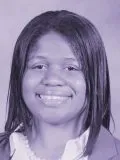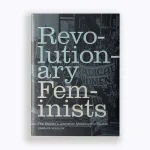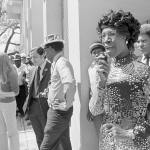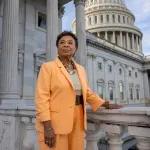Shirley Chisholm was a trailblazer: the first Black woman elected to Congress and the first Black candidate and the first woman candidate for a major-party nomination for president of the United States. Still, despite her tremendous influence on American politics, biographies of Chisholm have been immensely hard to come across.
With her recently released book, “Shirley Chisholm: Champion of Black Feminist Power Politics,” Anastasia C. Curwood, a professor and interim chair of the Department of History at the University of Kentucky, hopes to alleviate this gap. A cradle-to-grave biography as Curwood calls it, the book gives insight into who Chisholm was as a person and how Chisolm’s many lived experiences and multiple identities shaped who she was. In the book, Curwood coins the term “Black Feminist Power Politics” to describe how Chisholm’s identity as a Black woman born to immigrant parents in a working-class family allowed her to empathize with the lived experiences of marginalized individuals and informed her politics.
The 19th spoke to Curwood about her book and the prevailing lessons from Chisholm’s life and legacy.
Rebekah Barber: Outside of her memoirs there haven’t been many books written about Shirley Chisholm’s life. Why is this?
Anastasia Curwood: That’s a great question. I, myself, have had several different theories over the years, trying to figure out why that was. It took me 15 years to write this book. In that time, there was one book intended for college students that was published by a colleague I have at Brooklyn College.
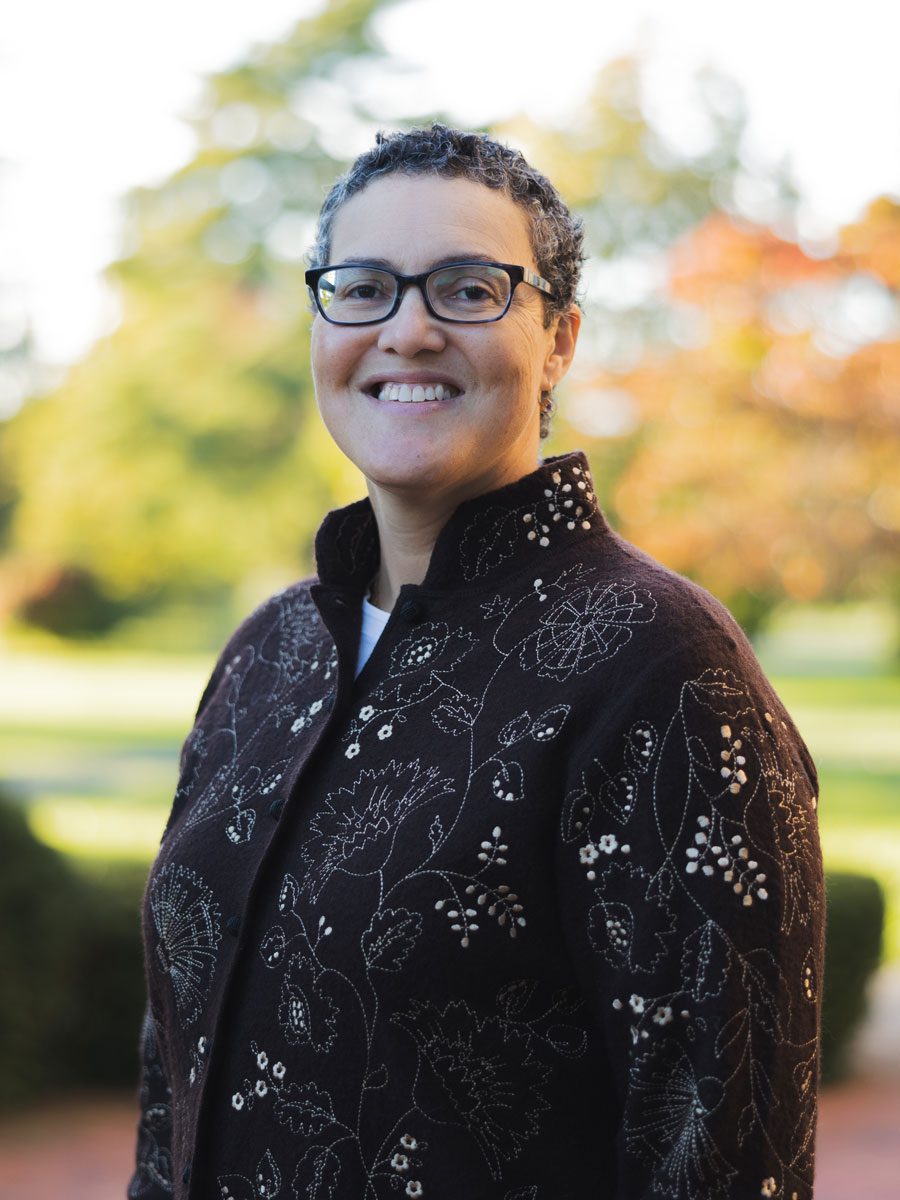
There’s been no cradle-to-grave biography. I think the reason I wasn’t scooped in the middle of all this is because first of all, Chisholm was a Black woman and Black women are very underrepresented in the world of biographies. Women are seen as somehow not universal or relevant to everybody else, and Shirley Chisholm’s life actually shows me the opposite. Her life is incredibly relevant to everybody.
The other thing is that she’s so iconic. To those who do know about her, she has this iconic status. She’s a symbol of principled Black and feminist political action and she ran for president — so she’s a famous first.
When people sometimes see a symbol, they don’t actually look behind the symbol and think that this person might actually be a real human being. That’s why I wanted to write a biography — to find the human being in the midst of big historical events, but I think most people don’t. It’s really hard to see symbols as human.
To that point, Shirley Chisholm was known for being “unbought, unbossed and unbound.” Since she was elected, I don’t think we’ve necessarily seen someone be able to be that unapologetic and still hold elected office. Why do you think that is?
It’s a combination of the person that Shirley Chisholm was and the times that she lived in. She was very outspoken and fearless because of her temperament, because of the Caribbean politics that she grew up in and around.
Caribbean people in the first part of the 20th century tended to be radical and get involved in politics. These are folks who came from, in many cases, majority Black countries where they saw Black people in power and then coming in and meeting up with American-style Jim Crow, a number of those folks became very politically active, especially in New York where she came up in.
She also interacted with the time she found herself in. She’s in the Black freedom struggle in the North. She was part of the feminist movement. She had connections to these movements, and she saw the intersections between them. Before Kimberlé Crenshaw created the term, intersectionality, she was practicing it. That’s what I call her “Black Feminist Power Politics.”
It was also sort of a high point for a liberal Congress. Yes, there were segregationists still in Congress, but there was also this idea of possibility, this idea that these newly enfranchised and empowered people — Black, Brown, female, young — could increase their power in Congress.
There’s this wave of excitement and sense of possibility — then that tapered off. When Richard Nixon and Gerald Ford finally left office, Chisholm was glad to finally have a Democratic president, but at that point, the more rightward turn in politics was already occurring. Carter did not govern unapologetically because he was looking over his shoulder at the right wing. That moment passed.
She was able to accomplish what she did because of the moment she was in and also because she was just really fearless.
As you mentioned, Shirley Chisholm embodied intersectionality, even before the term was coined. Can you talk about how you came to define “Black Feminist Political Power” to describe Chisholm’s political philosophy?
She was always talking about power, and she talks about freedom for Black people and for women. She saw all these pieces as being able to be brought together in politics to make a real difference in the everyday lives of the people who hadn’t had power in history.
“Black Feminist Political Power” was her looking at all those intersections, seeing how they came together at points of pressure and interest, and then putting pressure on to try to move an agenda forward — always with a consciousness of where the power was.
She didn’t have a name for what she did. She called herself a catalyst for change. I came up with that name to try to encompass what it was she was trying to do.
In your book you write about how at an early age, Chisholm had the opportunity to meet [First Lady] Eleanor Roosevelt and [civil rights activist] Mary McLeod Bethune. They helped shape her political philosophies, but she was perhaps most informed by her grandmother, Emmeline Seale.
Her grandmother, as far as I know, never left Barbados. She was a well-respected cook who worked in White people’s households in Barbados. She raised her children, oftentimes without her husband there.
What she represented to a young Shirley was a source of encouragement and a model for dignity and fearlessness. She encouraged Shirley to speak her mind, and this was a point when children were not encouraged to speak their minds. That left an indelible impression on Shirley.
You write about how growing up in a house without heat would later allow Chisholm to empathize with the plight of the poor. Her life and legacy teach the importance of having impacted people included in the policymaking process. What other lessons do you think Chisholm’s legacy teaches?
I want to refer back to this point about her being human. If you think that all our heroes are superhuman, then you might think that you, yourself, would never possibly be able to be heroic.
What she shows us is that a talented, sharp, and extremely savvy person was able to be tremendously influential and heroic, but she was not a perfect human being.
She had challenges with her family relationships. At one point, she got divorced and was really private about it. She could have a slightly difficult personality in terms of being a little bit arrogant and believing that she was the one who knew best in most situations. She made some political calculations that were not always ideologically pure but were moving toward the goals that she had for widening the scope of democracy.
Some of these traits would be traits that men have and we don’t really think twice about it. But as a Black woman, people were put off by more aggressive traits.
You don’t have to be a saint in order to make a difference. I say in the introduction, we need to see our heroes as human so that the humans of the future can see themselves as heroes.
It’s been about 50 years since Chisholm’s historic election to Congress. In that time, Black women continue to gain more congressional representation. Still, there still has not been a Black woman elected to the presidency. Why do you think this is?
The short answer is racism and sexism. We’re still dealing with both. Even Chisholm, when she ran, it was harder for her to raise money. It was harder for her to be taken seriously. People questioned her motives constantly.
It’s why it took so long [for a new Chisholm Biography to be published]: Black women are seen as irrelevant. Chisholm showed us that actually Black women are at the intersection of human interests that are very universal. It’s hard to explain that — especially when we live in a society where Black women are still devalued.
What do you most hope for readers to gain from reading this book and learning more about Shirley Chisholm?
First I want them to know who she was. A good number of people light up when I tell them about my book, but a lot of people still don’t know she was. This person is important enough to deserve a cradle-to-grave biography.
I also want people to know that she lived a full life. She had 80 years of living on this earth and 30 years of a career in politics. She was an effective legislator who doesn’t have her name on any big bills, but who really used the power she had to accomplish change for the good of democracy.

